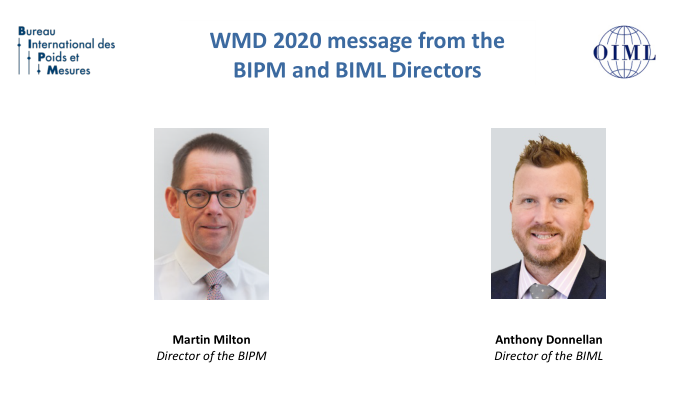
测量支撑全球贸易
你是否设想过在全球范围内交易的产品和服务共有多少?或考虑过跨境传输的电、气等能源有多少?你或许不知道确切的数量,并把测量当作理所当然,相信制造商、运输商和政府的所作所为会确保商品交易和运输的公平与安全。
令人欣慰的是,目前国际上已建立起一整套为精准测量提供必要保证和信心的体系,成为全球贸易的坚实基础。
根据世界贸易组织(WTO)提供的数据,2018年,全球产品贸易额达到了创纪录的19.67万亿美元。鉴于其中很大一部分产品的价格是使用法定计量单位来确定的,计量在全球贸易中所发挥的巨大,而且非常关键的作用,是显而易见的。
在国家和国际层面,政府采用技术法规和标准来保护生产者和消费者。据经济合作与发展组织(OECD)估计,约80%的全球贸易受到标准或法规的影响。为确保标准和法规的使用不会成为技术性贸易壁垒(TBT),从而导致成本增加、妨碍货物自由流通或要求重复检测,完善的测量体系一定是不可或缺的。
对产品要求的符合性评价的信任可以降低成本,增强企业和消费者的信心,而这也得益于强大而有效的全球计量体系。
我们每一个人的生活都依赖于从附近的某个商店或地处世界另一端的某个国家运输而来的物品,准确的测量可确保我们所需的产品和服务安全可靠地送达。
作为国际法制计量局(BIML)和国际计量局(BIPM)局长,我们将积极致力于提升计量在全球贸易中发挥重要作用,以保障公平和信心,保护生产者和消费者的权益。
“Measurements for global trade”
Have you ever wondered how many products and services are traded across the world, or considered how much energy crosses borders as either electricity or gas? You may not be aware of the exact amounts and take measurements for granted, putting trust in what manufacturers, transporters and governments do to ensure fairness and safety in the trade and transport of commodities.
Fortunately, international systems have been established to provide the necessary assurance and confidence that these measurements are accurate, and that they are a sound basis for global trade.
According to the World Trade Organization (WTO)1, the global trade of products was a record US$ 19.67 trillion in 2018. Considering that the price of a significant proportion of the global trade of products is determined using legal units of measurement, it becomes clear that metrology plays a huge – and indeed critical – role in global trade.
Technical regulations and standards are adopted by governments to protect both producers and consumers at national and international levels. The Organisation for Economic Co- operation and Development (OECD) estimates that about 80 % of global trade is affected by standards or regulations. A sound measurement system must be in place, so that the application of standards and regulations does not become a technical barrier to trade (TBT) which would lead to increased costs, inhibit the free flow of goods, or require repeated testing.
Trust in the assessment of conformity against specifications reduces costs and increases confidence for businesses and consumers; this is underpinned by the strong and effective worldwide metrology system.
We all depend on items that are transported to us, either from a store nearby or from a country on the other side of the world. Accurate measurements ensure that the goods and services we need are delivered safely and reliably.
As Directors of the International Bureau of Legal Metrology (BIML) and the International Bureau of Weights and Measures (BIPM), we work actively to elevate the importance of the role that measurement plays in global trade to ensure fairness, confidence, and protection of both the producer and consumer.